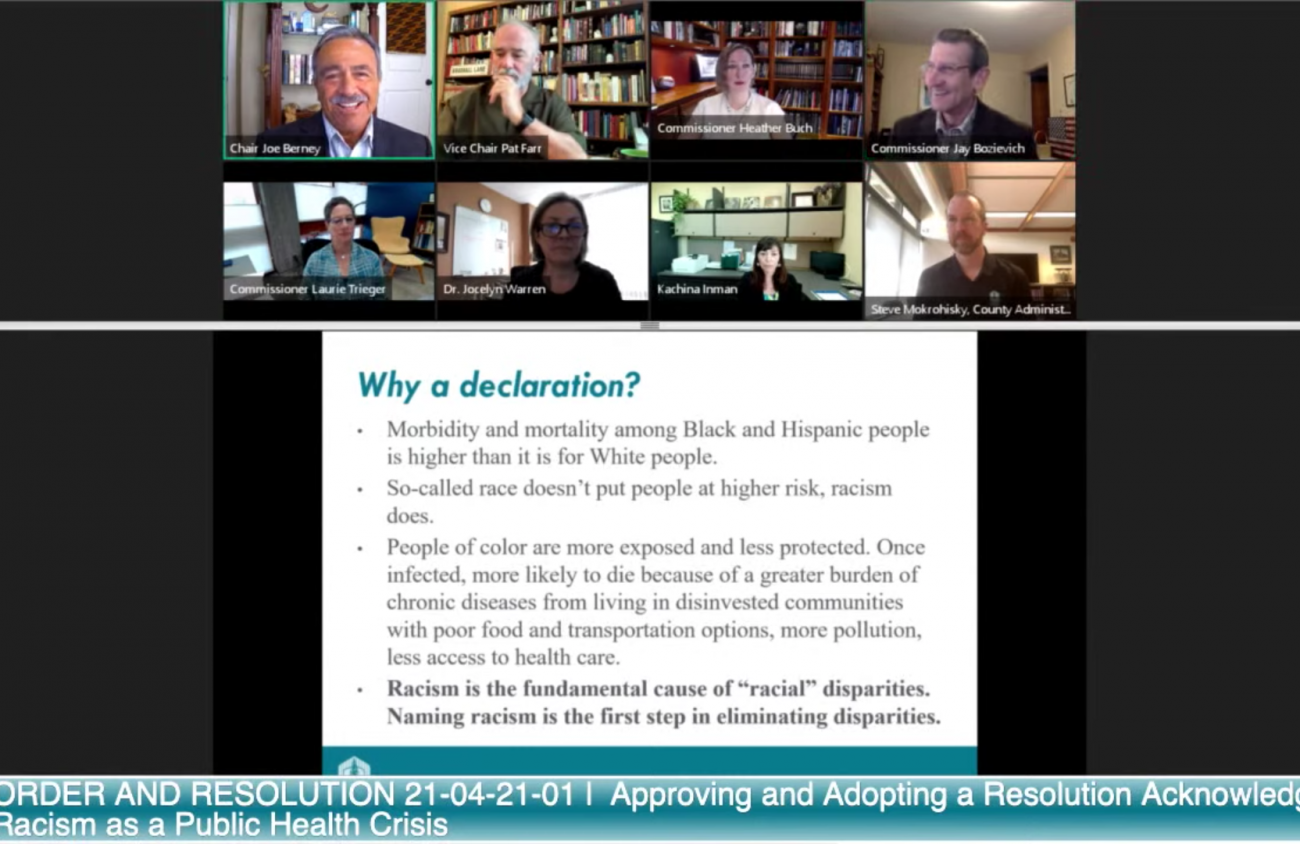Less than 24 hours after former Minneapolis police officer Derek Chauvin was found guilty on three charges related to his murder of George Floyd, the Lane County Board of County Commissioners passed a resolution acknowledging racism as a public health crisis. But a dissenting vote from Commissioner Jay Bozievich kept it from being unanimous.
Bozievich voted against the resolution because he said it was virtue signaling, the same reason why he said he voted against the 2019 resolution declaring homelessness an emergency.
“If we’re already doing all of the work that is called for in this,” he said at the April 21 meeting, “I see this as almost an unnecessary piece of virtue signaling.”
He added that he did support the definition of racism put forth by staff.
Dr. Jocelyn Warren, Lane County Public Health division manager, quoted Dr. Camara Phyllis Jones, a leading researcher on racism and its impact on communities of color.
According to Phyllis Jones’ definition, as presented at the April 21 meeting, “Racism is a system of structuring opportunity and assigning value based on the social interpretation of how one looks (which is what we call race), that unfairly disadvantages some individuals and communities, unfairly advantages other individuals and communities, and saps the strength of the whole society through the waste of human resources.”
Voting as the Lane County Board of Health, the resolution passed by county commissioners promotes active and authentic agreement with BIPOC communities on issues of race, ethnicity and health, according to the resolution. It will also employ an equity lens when forming policy recommendations and obtain and use more data to understand the county’s BIPOC community.
“It is critical that we look at this not as a resolution to look at and put on a shelf,” Vice Chair Pat Farr said. “But as a resolution as a base for action for this and future boards.”
The resolution also calls for review and evaluation of the county’s equity and diversity requirements for employees to ensure that training is not only mandatory but also comprehensive, relevant and incorporated into professional development. This would apply to all who represent the county, not just employees.
During the meeting, Bozievich said the resolution was redundant and that the county was already operating under an equity lens.
But Lane County Administrator Steve Mokrohisky said county staff feel like they’re not doing enough on equity, “and we are not operating at the level we should be,” he added.
And Lane County Public Health Division Manager Dr. Jocelyn Warren said the resolution was about holding the county accountable.
County staff presented the resolution because research shows that racism in the U.S. has had a negative impact on people and communities of color, particularly on their health. During Warren’s presentation to the county commissioners, she said compared to white Americans, data shows racial and ethnic minority groups experience higher rates of illness and death from health conditions such as diabetes, hypertension, obesity, asthma and heart disease.
“Race doesn’t put people at higher risk. Racism does,” Warren said.
“People of color are more exposed and less protected. Once infected with COVID-19, they’re more likely to die because of a greater burden of chronic diseases from living in disinvested communities with poor food and transportation options and pollution and less access to health care.”
She added that labeling racism is the first step to eliminating health disparities in the community.
Lane County’s resolution comes weeks after the Centers for Disease Control and Prevention’s April 8 statement that racism is a serious public health threat.
To watch the meeting, click here.
